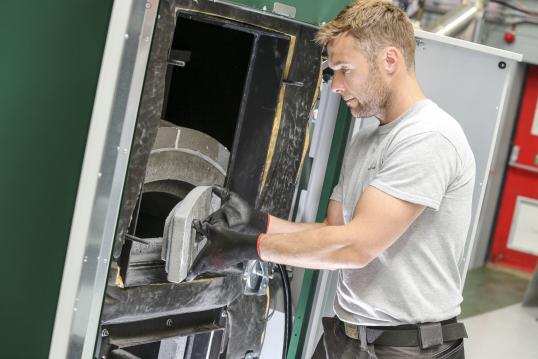The time for regulation is now

The popularity of biomass heating has seen a sharp rise over the past few years, yet one of the biggest threats to the industry is the lack of regulation.
While it might seem strange that a biomass company would call for more legislation and red tape, its clear to us at Rural Energy that better regulation would provide greater assurances and long term security to the industry as a whole.
The problem is that, while biomass heating installations under 45kW are governed by the Microgeneration Certification Scheme (MCS), there is no national accreditation scheme for installers undertaking installations larger than 45kW. This means that the vast majority of installations within the commercial RHI, such as hospitals, schools and factories are therefore completely unregulated.
Legally speaking, no official training or qualifications are required – meaning that theoretically anyone could set themselves up as a commercial biomass installer. While this may initially seem like a positive for installers looking to break into the biomass market, the lack of training, regulation and proper safety standards is potentially catastrophic.
Accreditation to some installers might seem restricting but it can actually create more business for those who comply. By investing in appropriate training, installers can offer a high level of quality assurance to potential customers that will help them win more contracts. What’s particularly concerning about the situation is that it is the larger boilers at the commercial end of the scale that require the most expertise in order to ensure a safe installation and efficient running – yet to date this fact has been ignored by government policy makers and is only being addressed by suppliers and distributors from within the industry who offer comprehensive training. As a young industry building its reputation, the impact of less scrupulous installers on market viability could be severe – which is bad news for credible installers looking to make a long term career out of biomass heating.
An industry code of practice to help installers is desperately needed, not only to ensure responsible levels of safety but also to deliver effective installations that function at maximum efficiency and reliability. A recent study by the Department of Energy and Climate Change found that biomass boilers in the non-domestic sector were at least 10-20% less efficient than expected – often this lower than projected boiler performance can be attributed to poor system design, installation and maintenance.
This is one the of the key reasons why at Rural Energy we have adopted a self-regulated installer accreditation scheme, which offers on-going tuition and technical guidance, allowing installers to properly develop their expertise in this field through live projects. We believe that raising the levels of skills and professionalism in the industry is key to ensuring biomass remains a profitable source of business for suppliers and installers alike, for many more years to come.
- Agriculture (10)
- Awards (5)
- Carbon Reduction (26)
- Commercial (13)
- Country Estates (4)
- CSR (3)
- Design (4)
- District Heating (2)
- Domestic (2)
- Education & Healthcare (2)
- Events (11)
- Finance (3)
- Herz (9)
- Horticulture (3)
- Industrial (6)
- Installer Network (1)
- Poultry (4)
- Project Management (1)
- Public Sector (1)
- Renewable Heat Incentive (23)
- Service & Maintenance (3)
- Training (2)
- Warehouse (1)
- Wood Fuel (13)
- March 2018 (1)
- February 2018 (1)
- January 2018 (1)
- September 2017 (2)
- May 2016 (1)
- March 2016 (1)
- February 2016 (1)
- January 2016 (3)
- December 2015 (2)
- November 2015 (1)
- October 2015 (2)
- August 2015 (2)
- July 2015 (1)
- May 2015 (2)
- April 2015 (1)
- March 2015 (2)
- February 2015 (1)
- January 2015 (1)
- December 2014 (2)
- November 2014 (1)
- October 2014 (1)
- August 2014 (2)
- July 2014 (2)
- June 2014 (1)
- May 2014 (1)
- April 2014 (3)
- March 2014 (1)
- February 2014 (1)
- January 2014 (1)
- December 2013 (1)



